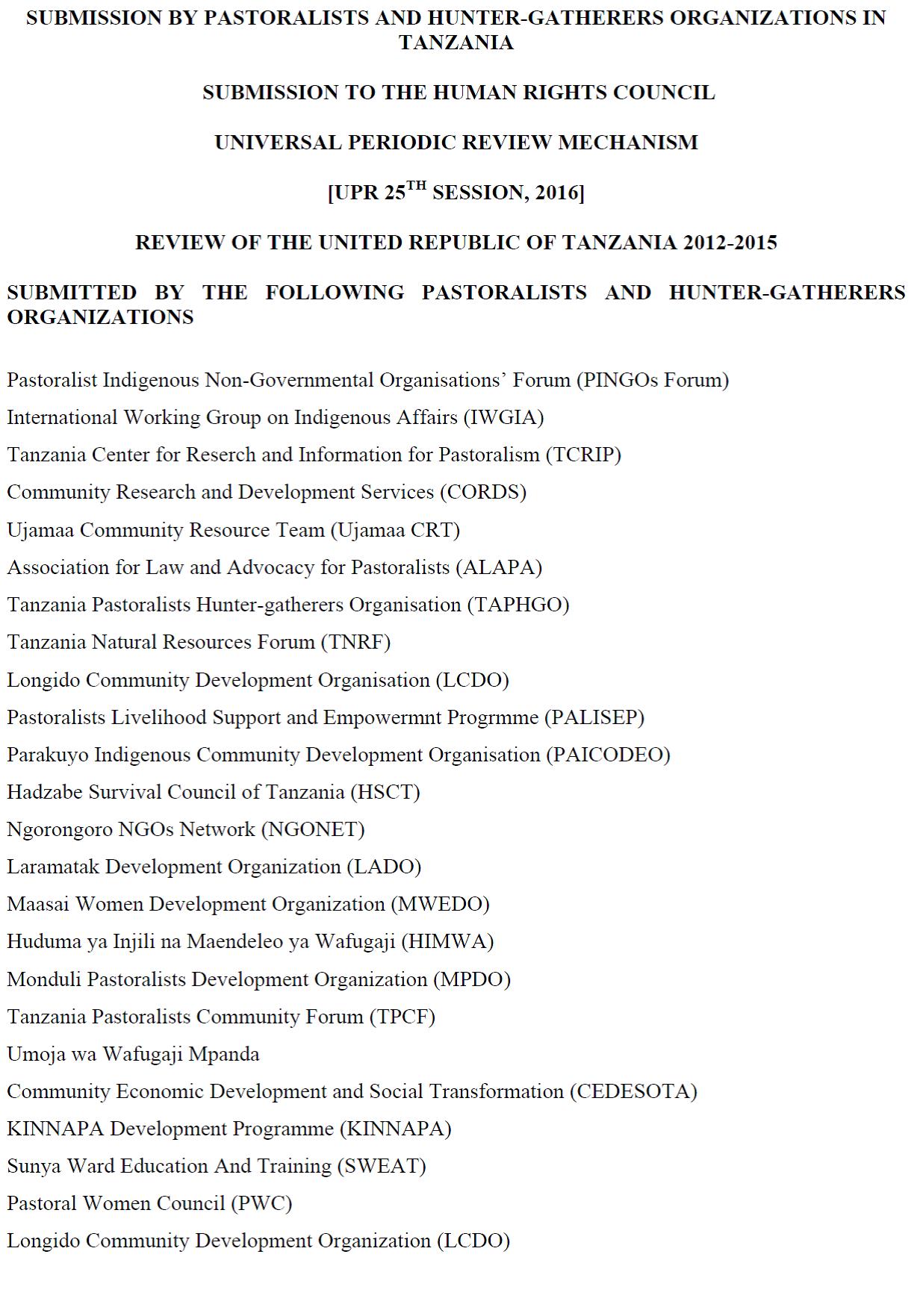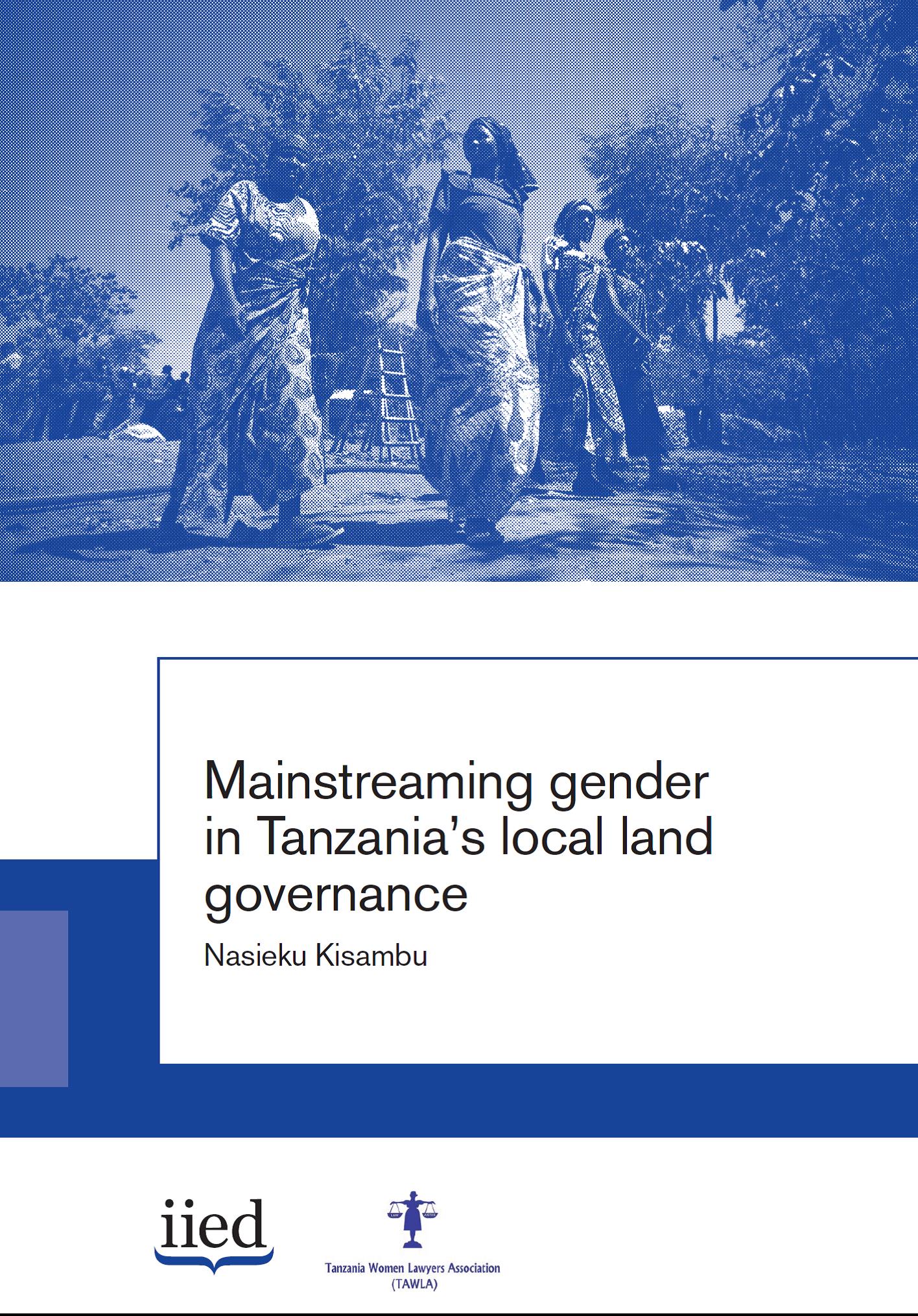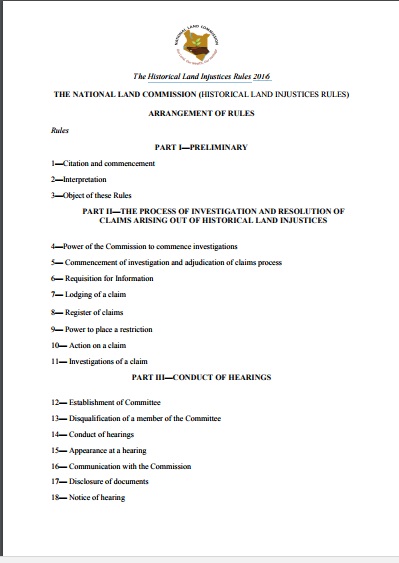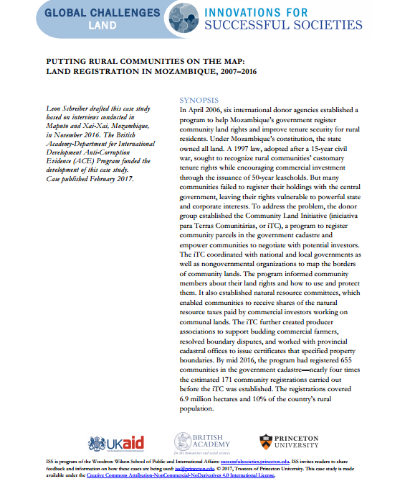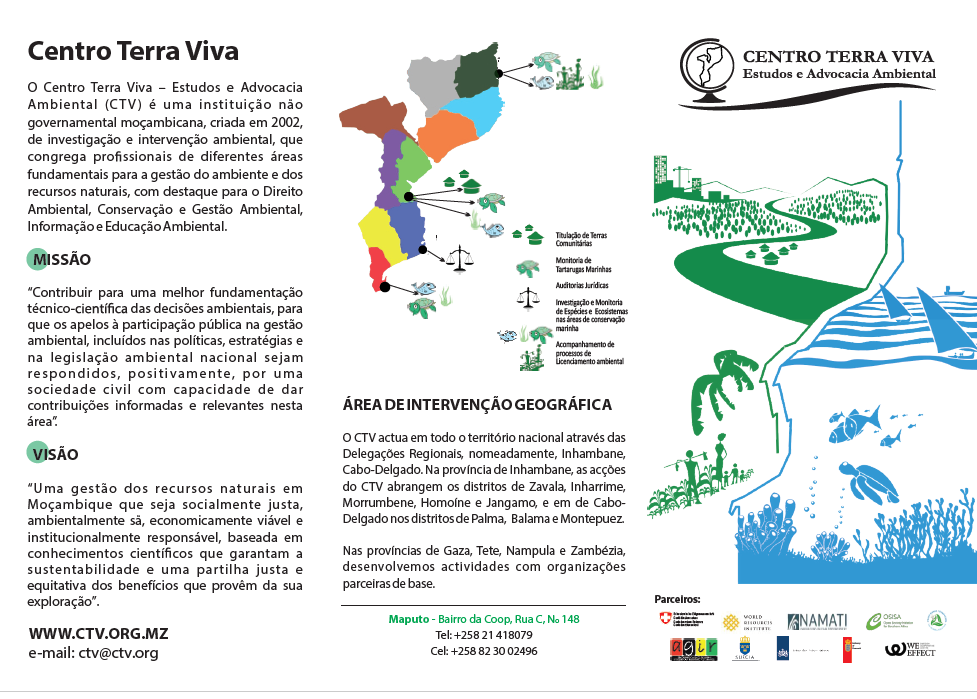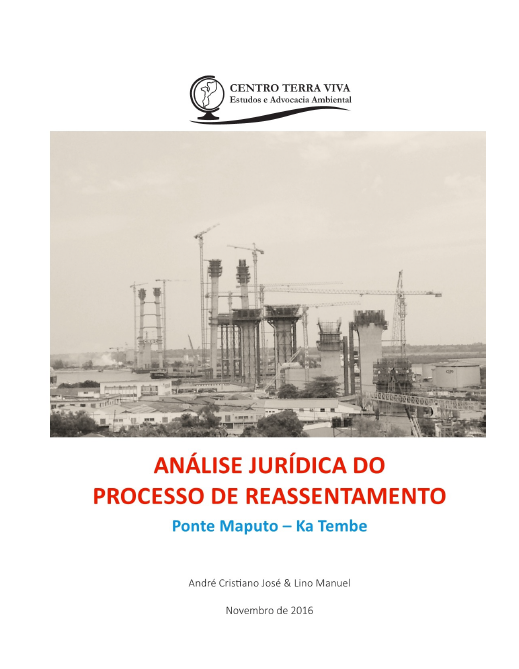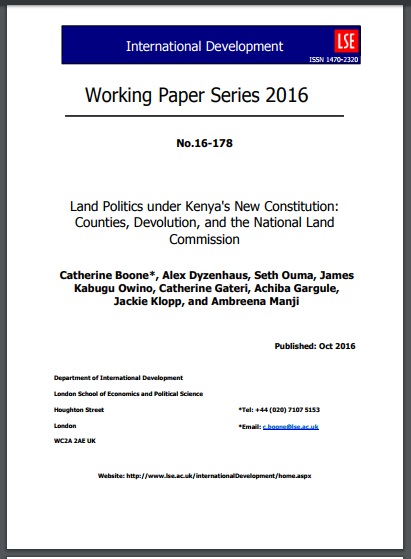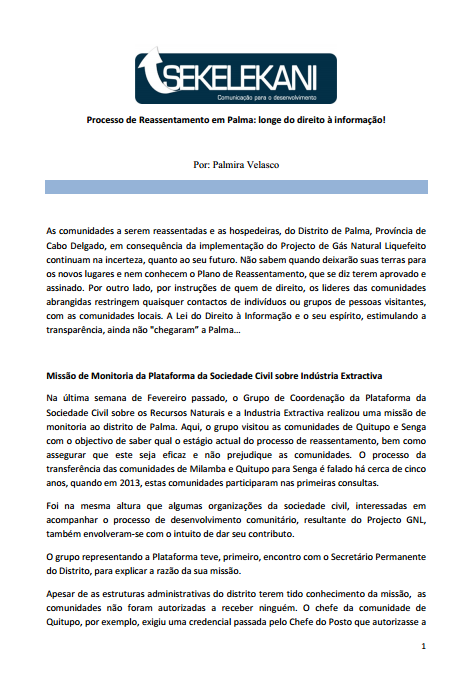Submission by Pastoralists and Hunter-Gatherers Organizations in Tanzania
This is a stakeholder submission prepared by a coalition of 24 pastoralists and huntergatherers’ Civil Society Organizations (CSOs), forums, networks and groups. The stakeholders submission is a compilation of primary and secondary sources of information, evidence and facts collected through consultative meetings and interviews with civil society organizations, public officials and community members, experts on pastoralism as well as members of the academia.

